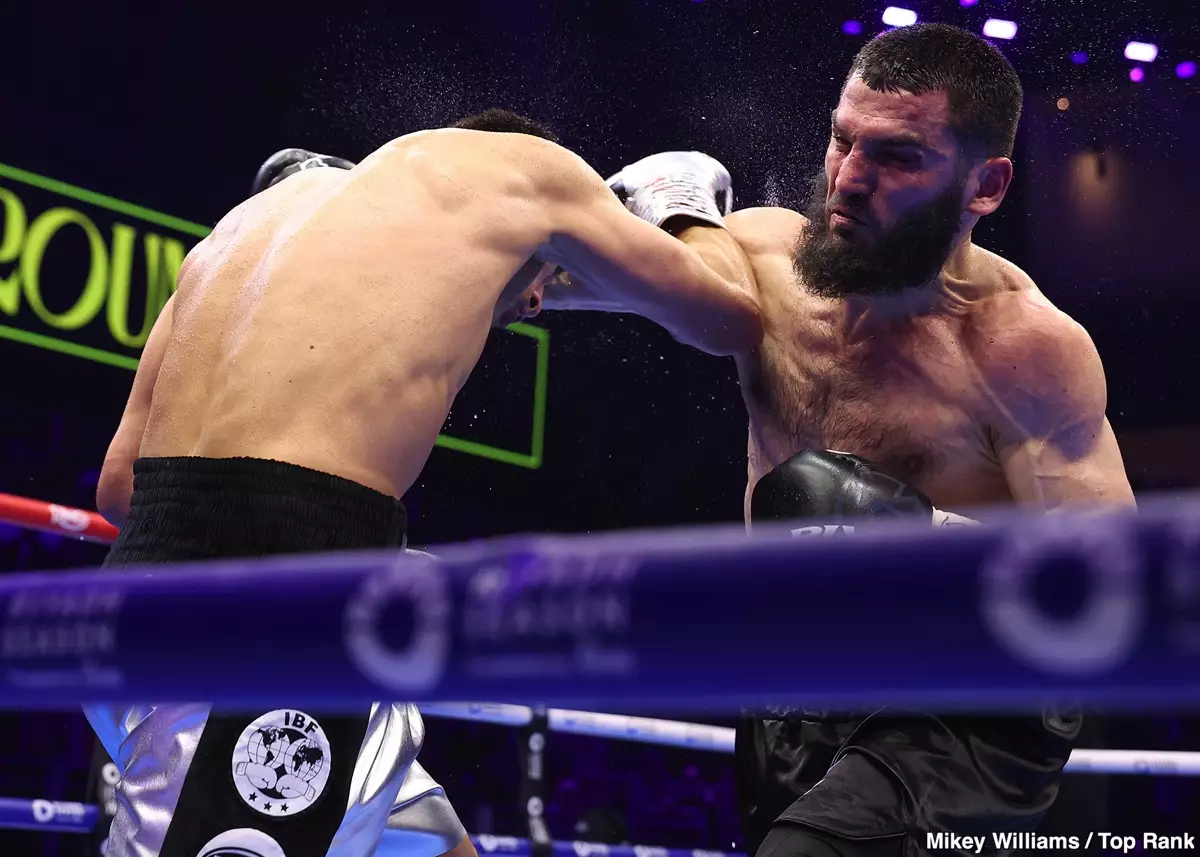In the ever-unfolding saga of Artur Beterbiev and Dmitry Bivol’s rivalry, their recent rematch in Riyadh offered yet another chapter filled with intrigue, drama, and a controversial decision. As both fighters entered the ring, the stakes were high, with Bivol seeking redemption and Beterbiev aiming to solidify his standing as a top contender in the light heavyweight division. While fans expected a thrilling showdown, the outcome refueled discussions about the fairness of judges’ scoring in boxing, raising questions about the integrity of such high-stakes contests.
Coach Marc Ramsay expressed his belief that Beterbiev was decisively in control during the early rounds, claiming he had his fighter winning five out of the first six rounds. This assertion is critical for understanding the narrative of the fight. While it’s important to appreciate the subjective nature of scoring, Ramsay’s perspective sheds light on how the fight unfolded — suggesting that Beterbiev’s aggressive approach and ability to land significant punches during these rounds put Bivol on the back foot. For those watching at home, the visual evidence seemed to align with Ramsay’s assertions, creating an aura of disbelief when the final scores were revealed.
The judges’ scoring — 115-113, 116-112 for Bivol, and a lone 114-114 even — sparked controversy immediately. Fans and analysts alike were divided, with many siding with Ramsay’s view that Beterbiev had done enough to at least secure a draw, if not a win. The perception of the bout as potentially a ‘robbery’ leads to essential questions: How often do fighters find themselves at the mercy of subjective interpretations of performance in boxing? This particular case reignites concerns that some outcomes are influenced by the fighters’ reputations and previous encounters, rather than the action taken within the ring on that night.
Impact on Future Fights
With this contentious decision now a part of both fighters’ legacies, Beterbiev might reconsider his options moving forward. If he continues to receive biased scoring, it raises the prospect of facing other top contenders such as David Benavidez or Callum Smith – match-ups that could be both entertaining and lucrative without the looming threat of dubious judging overshadowing the result. Eliminating factors that could compromise fairness is crucial for Beterbiev, especially if he aspires to regain his status as an undefeated champion and ensure that his talents receive the recognition they merit.
Ultimately, the Beterbiev vs. Bivol II fight has illuminated the ongoing challenges within the sport of boxing, particularly concerning judges’ decisions and their impact on fighters’ careers. As fans and analysts dissect the performance metrics and judge reactions, the true essence of boxing continues to be a tug of war between subjective interpretation and definitive skill. Moving forward, the hope is for a system that values transparency and justice, ensuring that talent prevails in a sport that envelopes not only the champions but also the passionate individuals who support them.

